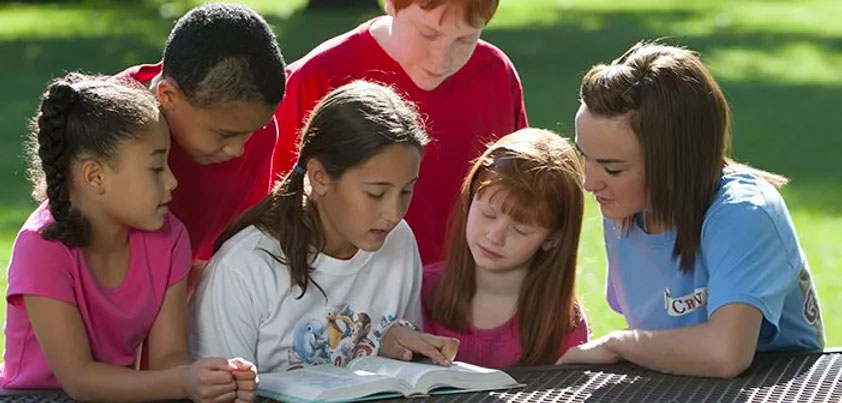Forget heated debates and impassioned explanations. It’s time to re-imagine apologetics for a new generation of children.
A few weeks ago, my 10-year -old son came home from school with a huge smile on his face. “John’s a Christian now!”
“Wow! That’s really cool! Tell me about it.” I’m not sure what I was expecting to hear. Maybe that Jeremiah had learned about the Four Spiritual Laws in his small group at church and walked his friend through those. Or maybe that he’d memorized the verses along the Romans Road and used those on John. Isn’t that what you’re supposed to do when you’re grounded in your faith and share the gospel?
What Jeremiah told me, though, had nothing to do with laws or a road. He said he’d simply told John a story-God’s story. God had created a perfect world that was broken, and humans chose to disobey God. Today, sin keeps us from being friends with God. He told John about God sending Jesus to fix what humans broke by taking our punishment for sin so that we can be friends with God forever. John didn’t ask my son for proof. He didn’t even argue about the validity of what my son shared with him. They were friends; John knew Jeremiah and trusted him. After a few clarifying questions, John declared, “Well, I want to be a Christian then.”
Yeah, I was pretty proud of my son.
A New Outlook
The premise of Diary, a reality show on MTV that follows celebrities through their so-called “everyday lives,” is that we make assumptions about how these celebrities live-only to find out how wrong we are. The show’s tagline is “You think you know…but you have NO idea.” I think the same principle applies to how we assume children communicate their faith with one another. Ironically, we’ve forgotten what it’s like to be a child.
In our desire to make sure that the kids we minister to own and hold onto their faith in the midst of a culture of spiritual pluralism, we turn to the world of apologetics. When applied to children’s ministry, apologetics has traditionally been about making sure children are learning the right information in Sunday school so they can adequately defend their faith against inevitable opposition by the unchurched world.
We’ve also ensured children learn proven techniques to share their faith, which included more information that could simply be memorized and used at a moment’s notice.
We’ve all read the statistics, though. More and more children are walking away from church when they reach their 20s…the years we tried so desperately to prepare them for by equipping them with a defensive apologetics of information.


Recent Comments